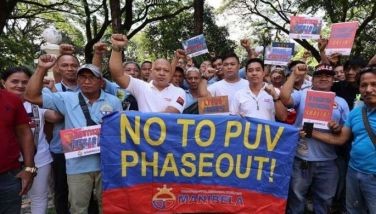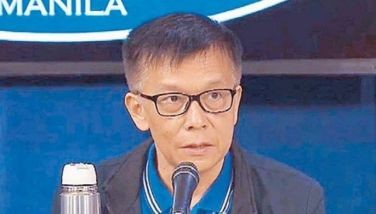‘No financing for projects with HR violations’

MANILA, Philippines – While the country’s development partners have not changed or imposed new conditions for loans, some of them have made it clear there will be no financing for projects tainted with human rights issues.
“No change. These are mainly concessional loans in terms of interest rates and maturity,” National Treasurer Roberto Tan said in a text message yesterday.
This means, he said, rates granted to the Philippines will remain below the prevailing market interest, leaving the government with more funds to finance projects than to pay debts.
The country’s economic managers are negotiating for funding from the likes of the World Bank and the United States, which President Duterte has repeatedly castigated for questioning the vicious conduct of his war on drugs.
For 2017, the Duterte administration will source 80 percent or P102.26 billion of its P126.26-billion gross foreign borrowings from these loans, also called official development assistance (ODA). This is a departure from previous practice of floating bonds to raise funds. As of August, 61.5 percent of existing debt pile is in the form of securities.
“The commercial one is more expensive to borrow,” Tan said when asked for an explanation for the shift.
This could be partly explained by the impending rise in rates in the US Federal Reserve, which emerging markets tend to follow. But with Duterte’s war on drugs gaining criticism, concerns over ODA flow have emerged.
The US, for instance, said it would nt finance projects with personnel “found to be involved in gross human rights violations.”
“Per US law and our long-standing human rights policy, security personnel and units found to be involved in gross human rights violations, including extrajudicial killings, will not be eligible to receive US assistance,” the embassy said in an e-mail.
No request for funding has been made though, it said, but officials are busy crafting the second Millennium Challenge Corp. compact grant for the Philippines.
The last one – amounting to $434 million – funded revenue generation enhancements, road and social protection projects.
For Australia, funding will still be focused on support for education, trade and economics.
“The Australian government delivers development assistance in line with ‘do no harm’ principles, including in the areas of environmental protection, resettlement, human rights and child protection,” its embassy said in a separate e-mail. There has been no change in financing terms as well, it added.
Based on government data, the US and Australia were the Philippines’ fourth and seventh biggest ODA provider in 2014.
Japan, the Philippines’ top ODA provider accounting for 23.2 percent of the total, said it was already involved in financing anti-drug programs back in 2011 through an “aftercare rehabilitation” project.
Currently though, the country is into infrastructure, mostly financing the Mega Manila Infrastructure Roadmap as well as the North-South Railway project.
“Delays are somewhat to be expected, particularly in big infrastructure projects but no project has been canceled or is being stopped,” Japan’s embassy said.
- Latest
- Trending




























